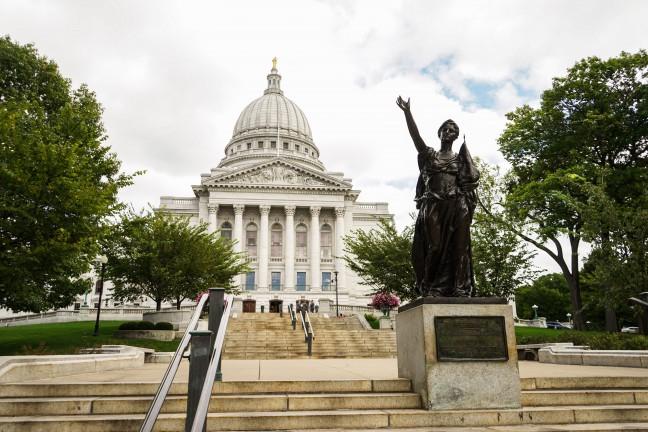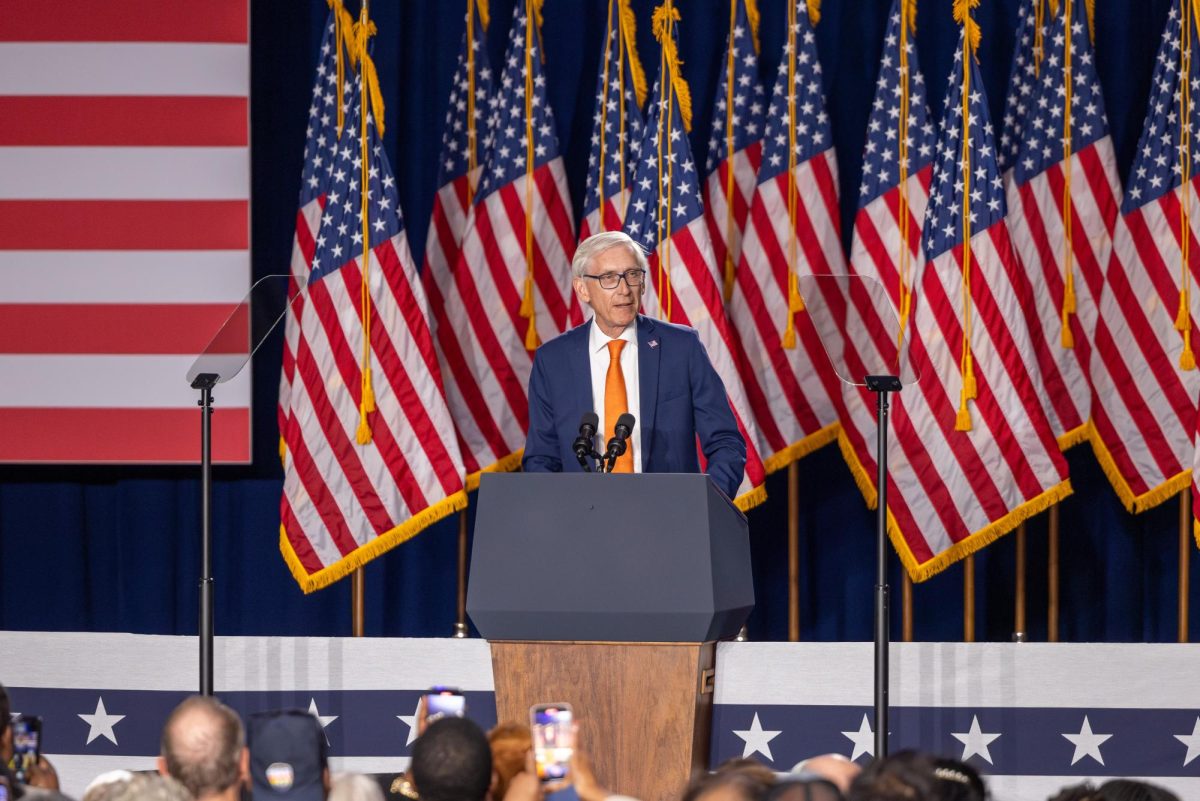Wisconsin Assembly Republicans unveiled their first package of COVID-19 legislation Tuesday, including an emergency fund to respond to the COVID-19 pandemic.
As Wisconsin sets a new single-day record of 107 COVID-19-related deaths this week, the Republican-sponsored assembly package already faces opposition from within and outside the party. This leads some lawmakers to fear they won’t be able to pass the package before federal COVID-19 relief funds expire, according to the Wisconsin State Journal.
Assembly Speaker Robin Vos (R-Rochester) said to the Wisconsin State Journal the package builds off of Gov. Tony Evers’ proposal from November.
“Wisconsin needs a comprehensive response and Assembly Republicans are ready to act before the end of the year,” Vos said in a press release. “We look forward to working with our legislative colleagues and the Governor on bipartisan solutions that the state deserves in this crisis.”
The package would create a $100 million pandemic fund, provide weekly rapid antigen tests for home use, continue to prohibit co-payments for COVID-19 tests, set guidelines for allowing state employees to return to work, and establish limited liability for schools, business and local governments.
While Assembly Republicans have mostly agreed upon the package, Senate Majority Leader Devin LeMahieu (R-Oostburg) proposed a different plan Tuesday that asks the DHS to request the Finance Committee transfer them surplus medical assistance funds.
This differs from the Assembly’s plan because it would rely on transferring state money, rather than creating a new fund.
“The Senate Republicans have discussed the various proposals related to COVID-19, some of which involve new and significant state spending increases across a number of new and existing programs,” LeMahieu said in a statement. “Senate members have serious concerns relating to the most effective distribution of new state funding. The transfer of surplus funds presents an opportunity to act immediately and work together with the Governor on a unified, effective response to our shared hardship.”
Meanwhile, the federal funds Wisconsin can use to fight COVID-19 are set to expire at the end of December.
Evers said the state cannot afford any funding gaps amid the current pandemic situation the state is facing, according to the Wisconsin State Journal.
“We cannot afford to have any lapse in testing, contact tracing or any of the other things we do around public health,” Evers said during a media call with reporters. “Taking a vacation from doing what we know we need to do — and at the same time kind of ramping up the vaccination efforts — that would be probably the dumbest thing we could think of doing. We need a consistent public health presence throughout the rest of this calendar year and into the next one.”
Recent history does not favor the package’s chances, according to WisPolitics News. The Wisconsin Legislature has been the least active full-time state legislature of the pandemic — they meet, on average, 18 times less frequently than other states across the nation.
Problems with bureaucratic efficiency and partisan barriers predate the pandemic, as reflected in frustrations with Attorney General Josh Kaul and Evers’ lawsuit against the legislature for making it more difficult to do their jobs, according to The Milwaukee Independent.
After former Republican Gov. Scott Walker lost, the 2018 Republican-controlled legislature reduced the powers of the executive branch, according to The Milwaukee Independent.
“In grasping at power after the 2018 elections, Legislative Republicans demonstrated open hostility to outcomes chosen by Wisconsin voters and made it more difficult for state government to function effectively,” Kaul said in July.













